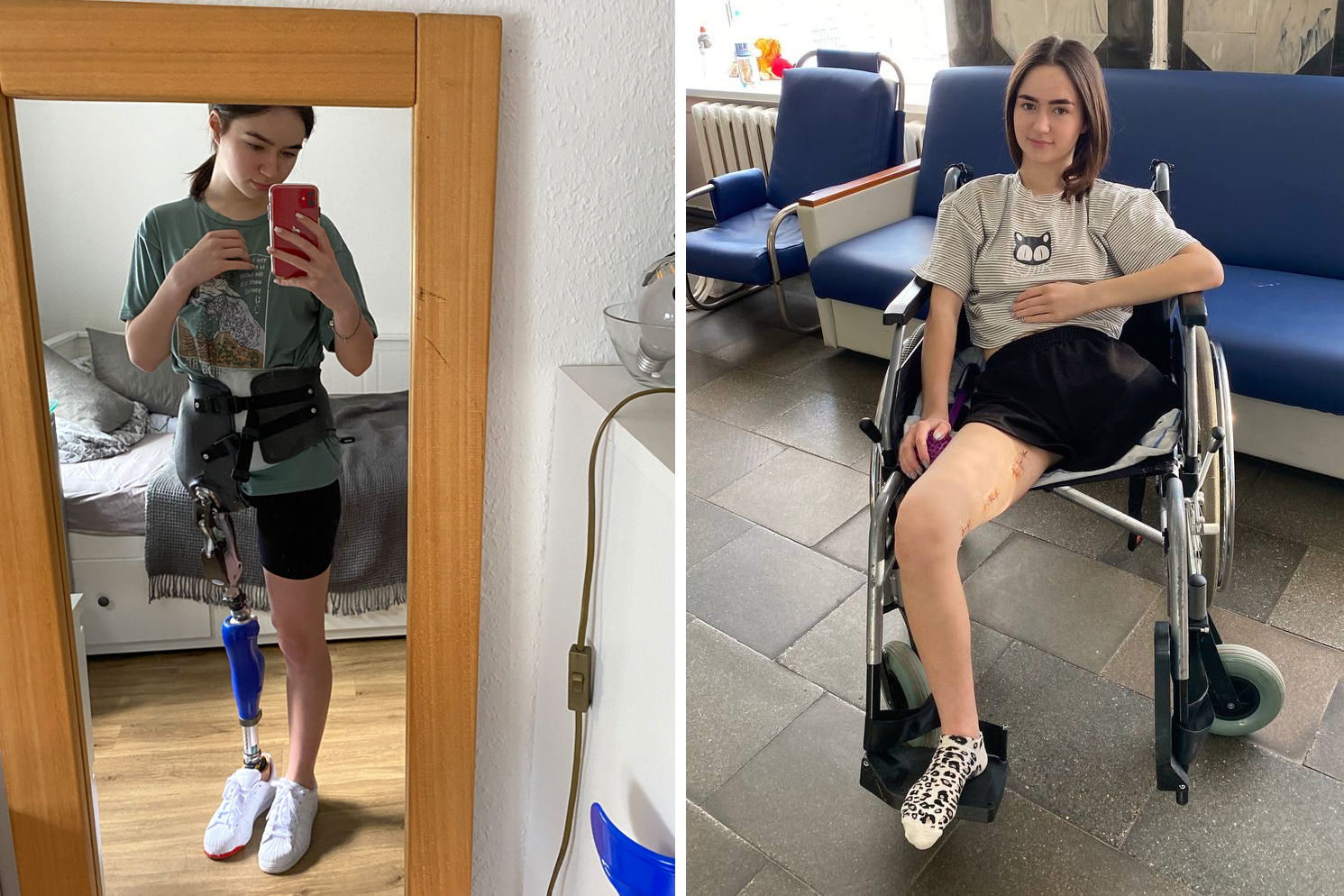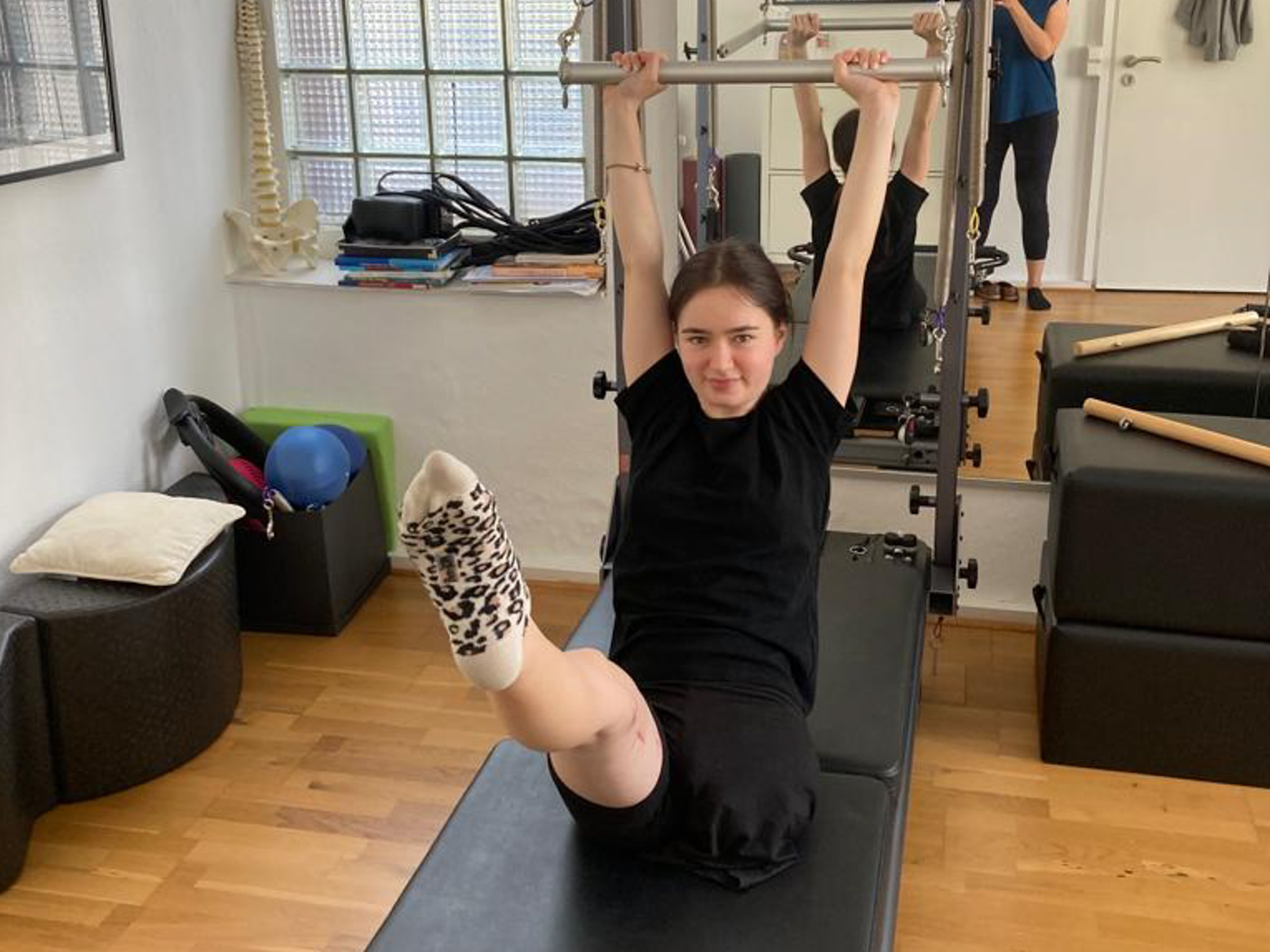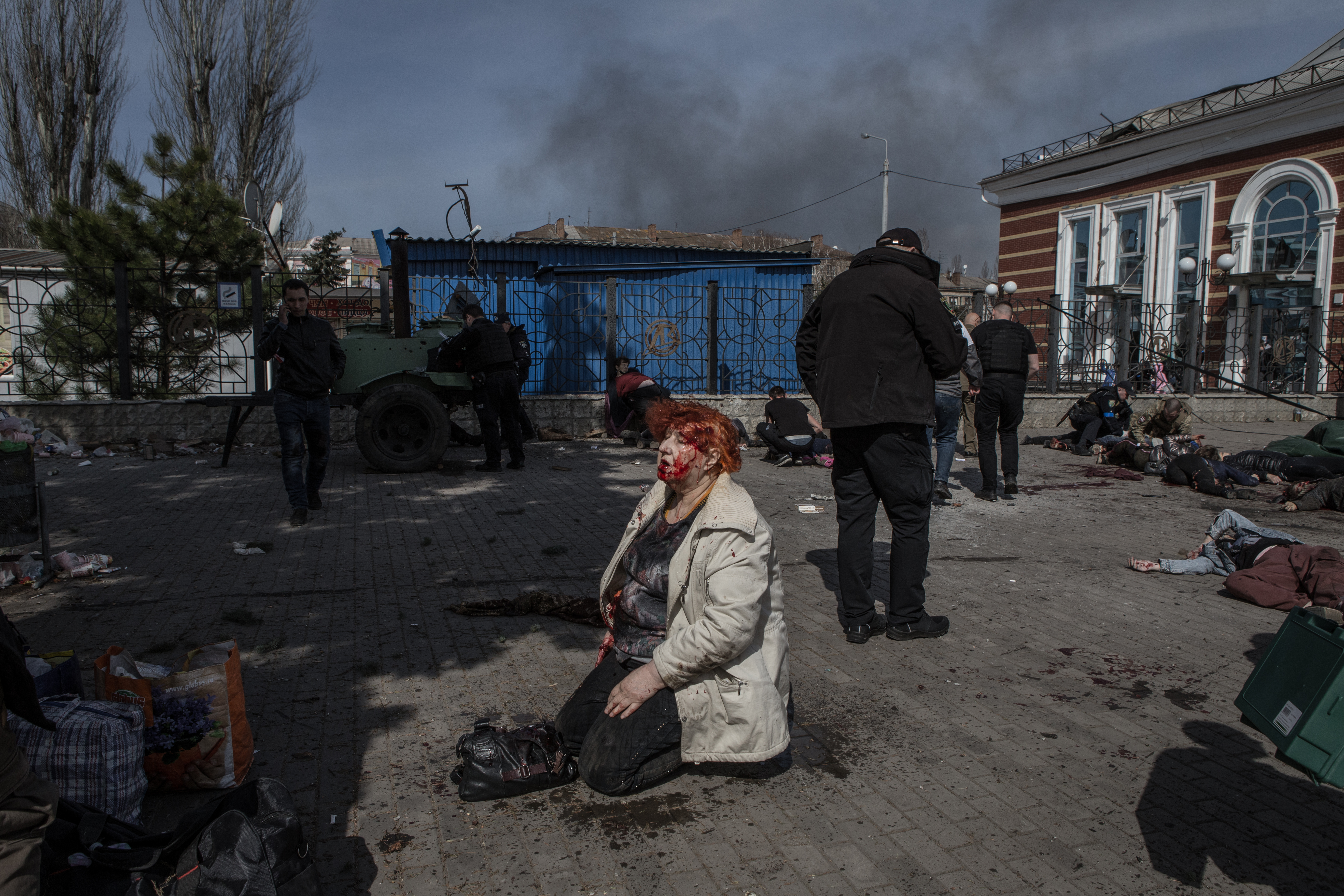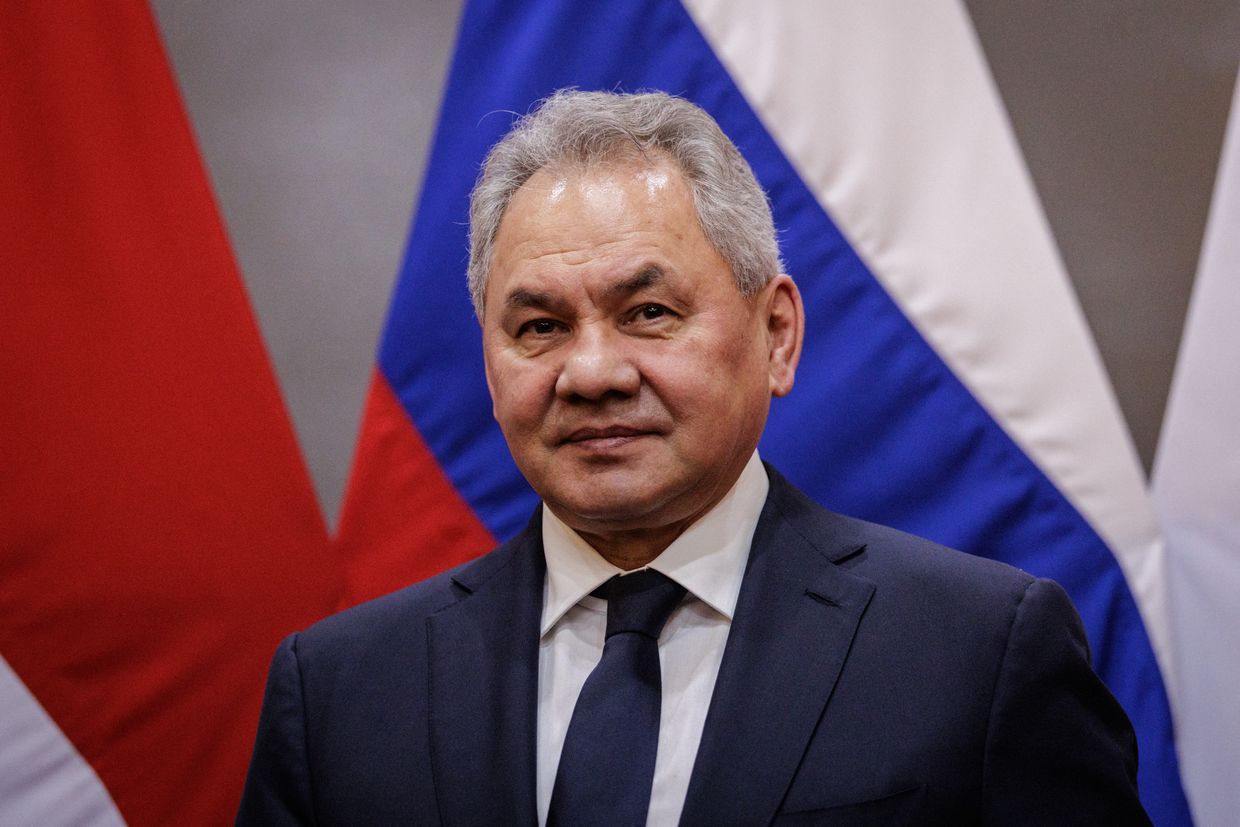Anastasiia Shestopal was escaping Russia’s war when she arrived at the train station in Kramatorsk early in the morning of April 8.
The 19-year-old had come from her native city of Druzhkivka in Donetsk Oblast, which at that time was just about 50 kilometers away from the front line.
She had a couple of hours to spare before a driver was supposed to pick her up and take her to a safer part of the country. She found an empty bench at the train station crowded with other evacuees and decided to do some reading.
Then, out of nowhere, a powerful blast knocked her off the bench.
Seconds later, when she regained consciousness, Shestopal found herself laying on the ground, covered in blood.
"I was lying there in a huge pool of blood. I had jeans on, but nothing was visible. I just felt that my leg was wounded," Shestopal says.
That morning, Russian forces used Tochka-U ballistic missile systems to hit the railway station in Kramatorsk, a city in the north of Donetsk Oblast. At the moment of the attack, there were thousands of civilians waiting for evacuation at the site.
The Russian strike killed 61 people and wounded 121, including children, according to the Security Service of Ukraine.
"There was so much blood, dead people everywhere," Shestopal remembers.
She was severely injured herself. Shestopal endured seven surgeries and eventually had to have her left leg amputated.
Now, Shestopal faces a long path of rehabilitation as she tries to recover from phantom pain and get used to a prosthesis.
Deciding to flee
Shestopal woke up to the sounds of loud explosions in Druzhkivka the day Russia began its full-scale invasion on Feb. 24.
Though she is based in Kyiv, where she studies social pedagogy, at that time, Shestopal was living in her native city, taking classes remotely due to the Covid-19 pandemic.
Unlike many neighboring cities, Druzhkivka wasn’t affected much by Russia’s 2014 invasion of Ukraine’s east. Shestopal thought the all-out war might be similar.
But Russia's attacks soon proved her wrong. Even though Russian strikes on Druzhkivka were more occasional than systematic, Shestopal says they were nonetheless terrifying.
One of her acquaintances lost an arm and his home in one Russian attack on the city in February.
Still, Shestopal was reluctant to leave her home town, since both her mother and older sister refused to evacuate. Shestopal says that her family didn’t want to leave their house and their old grandfather alone, despite the continuous danger of Russian aggression.
But Shestopal's friends who had left Druzhkivka and found shelter in relatively safer Dnipro Oblast eventually talked her into evacuating. On April 7, she finally decided to flee.
"I packed a suitcase in a hurry and found a driver via the BlaBlaCar app who agreed to take me to Dnipro," she says.
The next day, Shestopal took the early morning commuter train to Kramatorsk, arriving well in advance to make sure she didn’t miss her ride.
'Mom, I don't have a leg.'
"There were so many people at the train station that day, around 4,000 people," Shestopal recalls.
Everyone was going about their way. There wasn’t any noise or air raid siren before the attack, Shestopal says.
The first powerful blast knocked her off the bench. The second one followed shortly.
Lying on the ground, Shestopal saw people running all over the train station in panic. She recalls almost losing consciousness due to the wound but forcing herself to stay awake. She screamed for help three times but then stopped so that she wouldn’t spend the rest of her energy.
Shestopal says her left leg ached so badly, “as if it was on fire.”
Luckily, a rescue worker noticed her within minutes after the explosions.

She remembers him screaming to other emergency workers that she was in a "serious condition."
Later she would learn that her left leg’s femoral artery was injured, and she could have died from critical bleeding right at the train station if she hadn’t been provided medical assistance quickly. "Somehow, I survived," Shestopal says.
Even though she was in a state of shock, she managed to take a call from her sister's husband and told him that she was alive and being taken to a hospital in Kramatorsk.
While looking for her daughter, Shestopal's mother went to several hospitals in the city. She later told her daughter that blood was all over the places she went to.
"She told me it was all over the floor, on the walls, everywhere."
When her mother found her, Shestopal was already in the operating room where local doctors were trying to save her leg. After the surgery, she fell into a coma for nearly six hours.
As soon as she woke up, Shestopal and other victims of the missile attack were taken to a hospital in Dnipro, a regional capital located about 250 kilometers west of Kramatorsk. She says that twenty-five ambulances transported the wounded that day, each carrying several victims.

The second surgery was performed shortly upon her arrival. The girl says she was "begging" the doctors to save her leg.
First they promised to try but eventually decided to perform amputation since she had “an extremely severe injury," Shestopal says.
"They had to either amputate my leg or I would have died."
When she woke up, Shestopal called her mother, who was on her way to the hospital: "Mom, I don't have a leg," she cried.
"You're alive. That's the most important thing," she says she heard in response.
"I was feeling hopeless and relieved at the same time," Shestopal says. "I no longer had to fight for my leg, but I had to start fighting for my life."
Never give up
Shestopal spent a month at the hospital in Dnipro. Not only was it physically challenging for her to endure all the surgeries, but hearing explosions in the city and witnessing other victims of Russia’s war in the hospital made it even harder to recover.
She also needed a custom-made "functional, complex prosthesis," which was difficult to find in Ukraine.
After learning of Shestopal's story, a couple from Germany offered help: They found a hospital in the city of Essen, where she is undergoing rehabilitation for free, and rented an apartment for both her and her mother.
Even though she feels safe in Germany now, Shestopal says she plans to return to Ukraine as soon as her rehabilitation is over: "Just like all of us, I just want our victory," she says. "I want to return home."

For a second, after she saw her leg amputated, Shestopal says she even regretted the attack hadn't killed her. She says she did not know how to continue living.
But with the support of the people she loves, Shestopal found the strength to keep on going.
Almost every day now, Shestopal posts herself doing sports and learning how to walk with a prosthesis on social media, inspiring others to recover even after serious injuries.
"Never give up," she says. "Even if you lost an arm or a leg. You have your whole life ahead of you."













